
7 minute read
THE RISE OF SOMERSET’S ... FOOD AND DRINK
A visit to the pastoral landscapes of Somerset can both soothe the soul and nourish the palate. But this south-west English county is not merelythe home of Cheddar Cheese or ancient apple orchards, Somerset’s epicurean delights are in abundance
I'm staring at a laminated newspaper clipping of Prince Harry and Meghan Markle’s Royal Wedding menu, pinned with two gold thumb tacks to a pole. Amid the usual suspects – beef from Prince Charles’ Duchy organic farm, Scottish trout roe – someone has neatly circled ’10-year-old Somerset cider brandy’ from the short ‘Wines, Beers & Liqueurs’ listing in blue pen. I suspect that someone is hovering over my shoulder. ‘They might have chosen it because they thought it was jolly good stuff,’ says Somerset Cider Brandy founder Julian Temperley, ‘Or they may have chosen it because the label matches the good prince’s hair colour. Anyway, it’s a song that we’ll sing for a very long time.’ After tasting said brandy, I’m inclined to agree with Temperley’s first opinion: it’s jolly good stuff.
Unlike most people packing their Wellington boots for Somerset’s famed Glastonbury festival, I’m stomping about in mine in apple orchards. In distilleries. On dairy farms. In cheese rooms. In smokeries. Even around an organic spelt and walnut farm. While the Glastonbury festival may be uncertain again due to pandemic concerns, the real showstopper for anyone considering an extended road trip is Somerset’s permanent food and drink line-up.

SHEEP GRAZING AT SOMERSET CIDER BRANDY FARM
The small radius of extraordinarily high-quality producers has a lot to do with this south-west county’s geography. Over at Thatchers Cider, which has been a commercial cider business since 1904, chief cidermaker Richard Johnson points out the Mendip Hills around us at Myrtle Farm: ‘They were produced hundreds of millions of years ago when Africa crashed into Europe and pushed Britain up out of the water. At the time we were under water here. The Mendip Hills are limestone, so for millions of years all that limestone was under the sea and when it was pushed up out of the water, all its microscopic sea creatures were pushed into the valleys, so we have really deep, rich, mineral soil, which provides really good nutrients.’ Combined with the temperate climate this close to the sea, it makes the west of England an excellent spot for growing apples, which is why you’ll find most of Britain’s cider makers here.
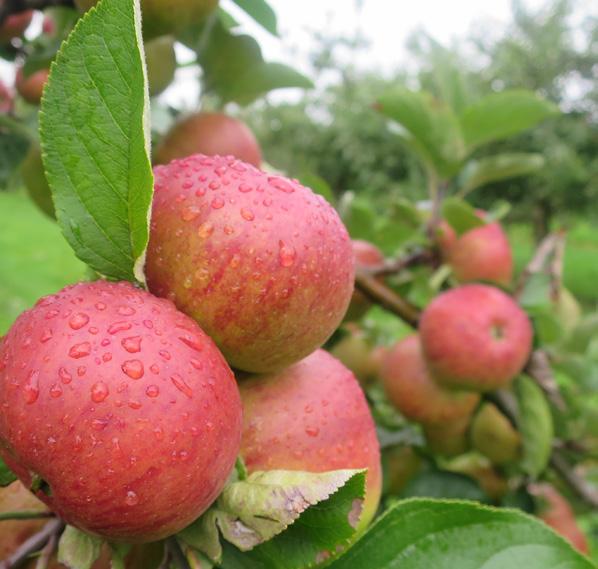
APPLES IN THATCHERS CIDER ORCHARD
But Somerset’s not just about the cider. I emerge from Brown & Forrest Smokery in Langport as aromatic as a blazing wood bonfire, but I’ve tasted some of the best smoked meat and fish of my life here. ‘I’m only interested in the best quality I can find,’ says owner Jesse Pattisson, who supplies the likes of chefs Mitch Tonks and Nathan Outlaw with bespoke smoked produce, as well as restaurant chain Hawksmoor and Fortnum & Mason. You won’t find Brown & Forrest produce in supermarkets either, which is reason enough to make the trip to the redchecked tableclothed restaurant here (closed during lockdown, though the shop remains open) to indulge. ‘Ninety per cent of my stuff comes from within 20 miles of here,’ says Jesse, as we survey the rain-spattered, glowing-green landscape. ‘Somerset grows great grass and that makes great milk and that makes great cheese. It’s not rocket science.’
Don’t Miss: Porlock Bay Oysters

Porlock Bay, on the Exmoor coast, produces oysters that are akin to France’s Speciale de Claire or Fine de Claire in terms of quality. Benefitting from one of the highest tidal ranges in the world (second only to Canada) and Grade-A water quality, Porlock Bay oysters are sought after by some of the top chefs in Britain, not just for the pure taste but because, unusually, they’re available year-round. → porlockbayoysters.co.uk
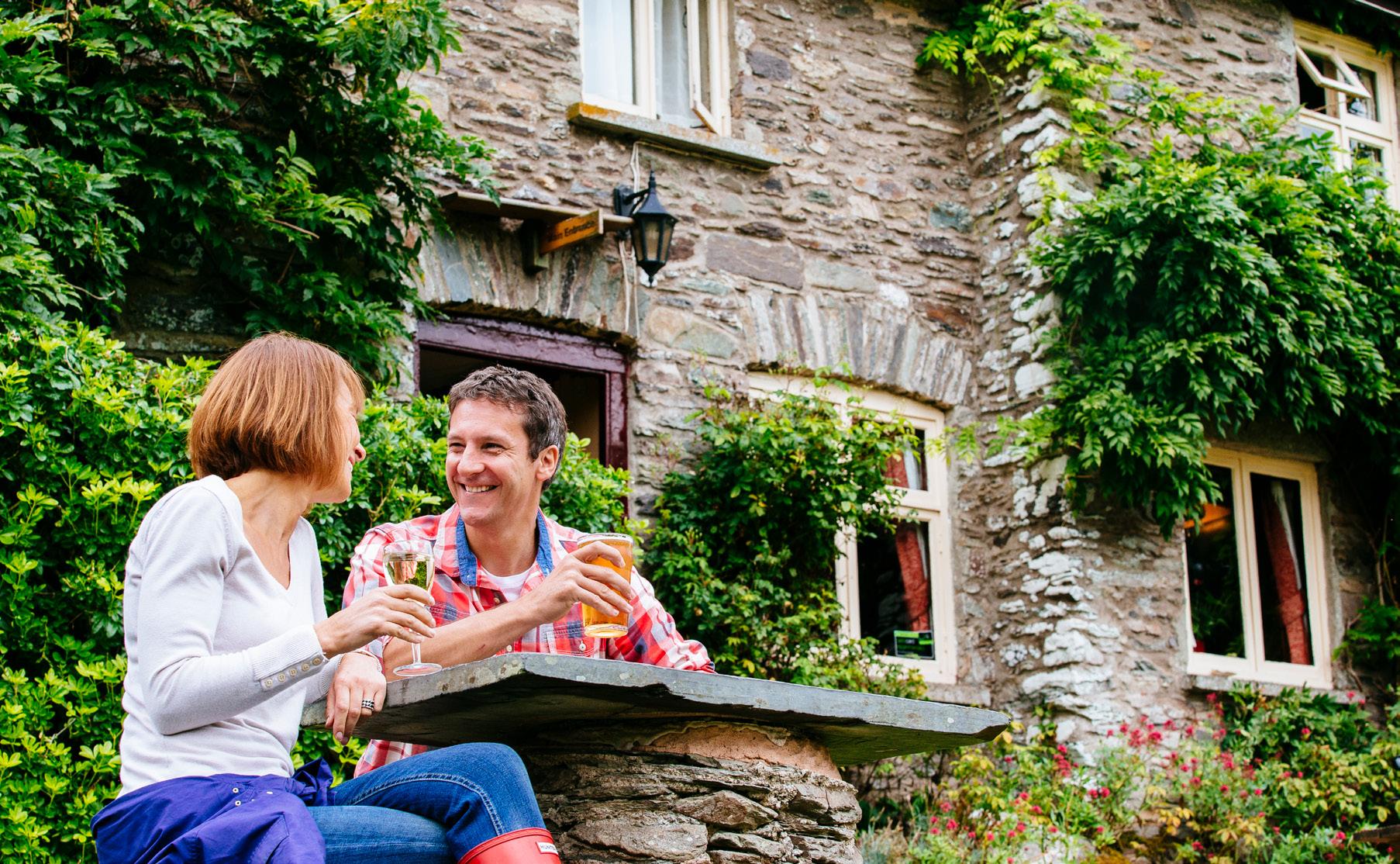
COUPLE SITTING AT A TABLE OUTSIDE A SOMERSET PUB, HAVING DRINKS AND A MEAL
©VISITBRITAIN/ BEN SELWAY
‘Somerset is fantastic for grass,’ echoes Tim Mead, CEO of Yeo Valley Organic Farm, which has been making yoghurt since 1969 but decided to back organic farming 20 years ago and now has 1800 employees. Unlike Brown & Forrest, Yeo Valley’s wide range of dairy products is available in supermarkets across Britain, and they have a cafe in Somerset’s Blagdon, as well as one in London’s Bayswater that serve breakfasts and brunches, both of which will open again when COVID-19 restrictions allow.

YEO VALLEY FARM YOGHURTS
It’s a slick operation. At the quirkily decorated Blagdon outlet, there’s even a dedicated space for their food ambassador (chef Paul Collins) to do regular cooking demonstrations, and they also hold a festival (Valley Fest) at the end of July that attracts 50,000 visitors annually, with the hope to run it in a socially distanced manner in 2021.
‘Today we have over 100 dairy farmers from the southwest supplying the Yeo Valley dairies,’ says Tim, ‘We’ve got two dairy farms of our own and we buy milk from another 100 dairy farms, and the total organic milk produced in the UK is about 5% and we’ve set ourselves a life goal of 10%. That’s just a big enough sector that we don’t lose all the knowledge and consumers now have an option to not have factory-farmed milk.’
True dairy aficionados shouldn’t pass up the opportunity to sample cheddar cheese in the Somerset village of Cheddar and from the world’s only cheesemaker that matures some of it in the caves of Cheddar Gorge itself. ‘It’s traditional cheddar cheese made by hand,’ says Katherine Spencer who, along with partner John, took over the small business when it was in decline in 2003 and turned it into the Cheddar Gorge Cheese Company. ‘We only make between six and nine cheeses every day. It’s small batch, it’s very much an artisan process.’ Cheese products and accessories can be purchased on-line during COVID-19 restrictions, but when the shop re-opens, visitors can also watch the cheese being made from a viewing gallery.

THE ORIGINAL CHEDDAR CHEESE COMPANY

CHEDDAR GORGE AND CAVES
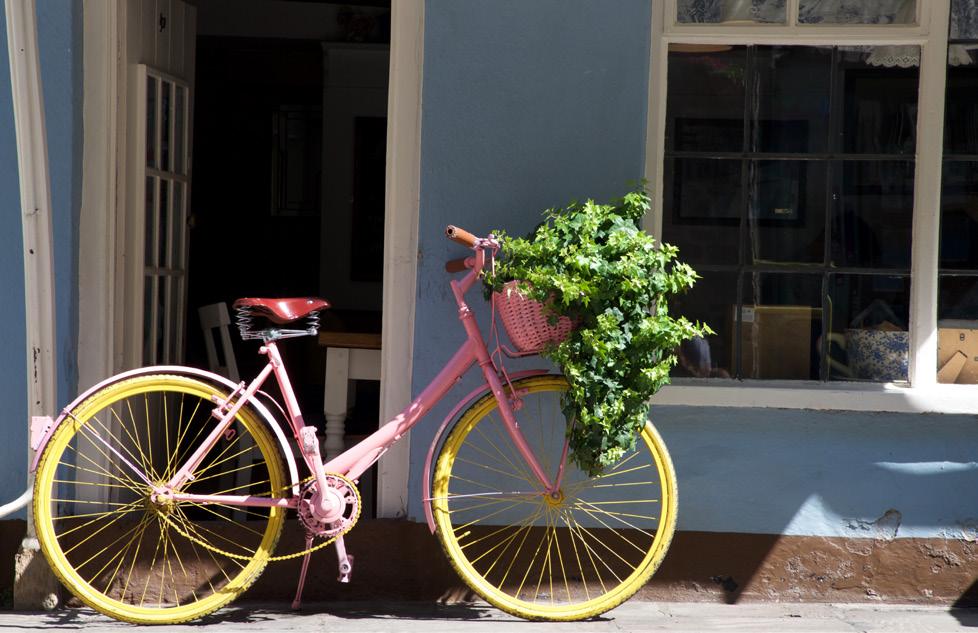
CHEDDAR VILLAGE
But the most overachieving small producer I meet is Roger Saul. The former founder of the Mulberry designer label was born in Somerset, and after leaving the fashion world in 2003 he bought a farm here and started growing spelt. ‘It was a rundown dairy farm that came up for sale for the first time in 100 years,’ he says, still impeccably attired as we jolt around the Sharpham Park estate in a buggy (he also used to be a racing car driver!) as his herd of red deer frolic below Glastonbury Tor. ‘It was just as organic farming was really coming back in. Food was the new fashion. So, I literally jumped out of fashion to being back in fashion by being in food. And nobody was growing spelt in the UK.
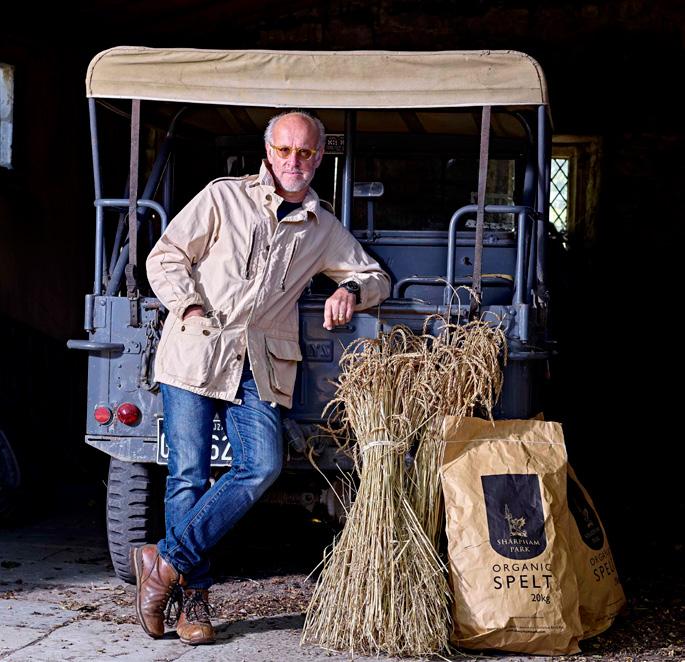
FOUNDER OF MULBERRY, ROGER SAUL
There were millers milling it but no one was actually growing it seriously.’ Saul’s farm produces not just an astounding range of spelt products (flour, bread, muesli, porridge) that are stone-ground in the traditional way, but organic venison and walnuts (‘With 300 trees, we’re the biggest organic walnut farm in the country, if there are any other organic, because it takes so long’).
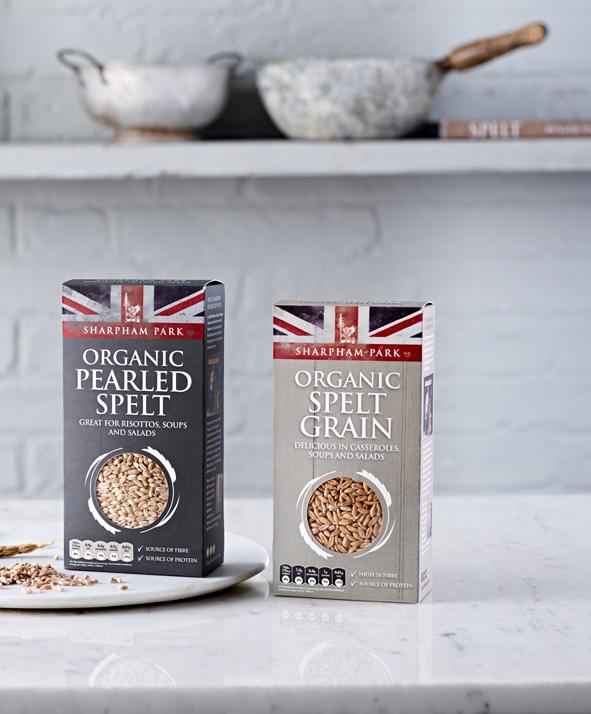
SPELT AND GRAIN PRODUCED ON SHARPHAM PARK FARM
And while the 300-acre Sharpham Park isn’t open to the public, its organic produce is sold at Waitrose and Sainsbury’s supermarkets or, when freedoms allow, can be enjoyed close to the source at the Sharpham Pantry Restaurant or Harlequin Café in Kilver Court, essentially a designer village that Saul founded on the edge of Shepton Mallet in 2011. For a British organic food trailblazer, he’s remarkably humble. ‘Provenance, I think, today couldn’t be more important,’ he says as we lunch on his spelt pasta range,’ And we always want to know where our food comes from. And if it’s organic, from my perspective, it’s 100 times better for you.
WHERE TO VISIT
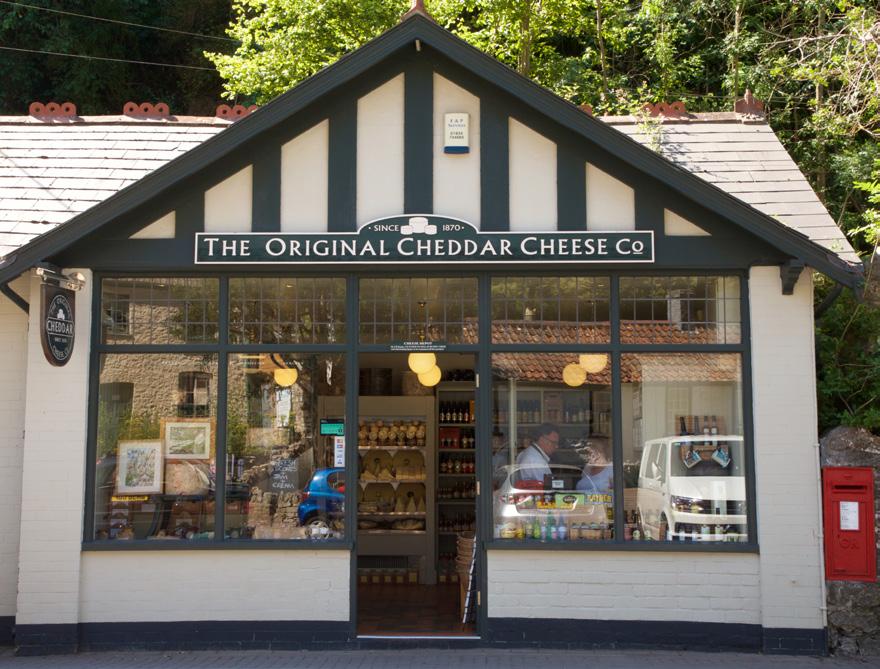
THE ORIGINAL CHEDDAR CHEESE COMPANY
WHERE TO VISIT:
SOMERSET CIDER BRANDY
→ somersetciderbrandy.com
THATCHERS CIDER
→ thatcherscider.co.uk
BROWN & FORREST SMOKERY
→ brownandforrest.co.uk
YEO VALLEY ORGANIC FARM CAFÉ
→ yeovalley.co.uk/come-and-visit-us
CHEDDAR GORGE CHEESE COMPANY
→ cheddaronline.co.uk
SHARPHAM PANTRY RESTAURANT
→ kilvercourt.com/cafe-and-restaurant/ sharpham-restaurant
It is a 90-minute train journey from London’s Paddington Station to Somerset (Bath) with Great Western Railway. Fly into Bristol or Exeter airport or take the M5 motorway. → visitsomerset.co.uk → greatwestway.co.uk
Words | Karyn Noble








